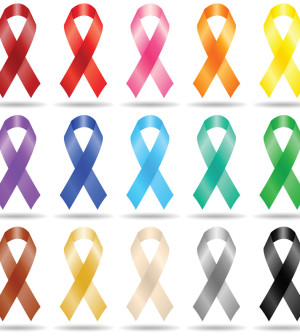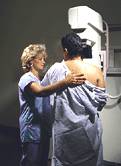- 8 Ways to Increase Dopamine Naturally
- 7 Best Breads for Maintaining Stable Blood Sugar
- Gelatin vs. Collagen: Which is Best for Skin, Nails, and Joints?
- The Long-Term Effects of Daily Turmeric Supplements on Liver Health
- Could Your Grocery Store Meat Be Causing Recurring UTIs?
- Are You Making This Expensive Thermostat Error This Winter?
- Recognizing the Signs of Hypothyroidism
- 10 Strategies to Overcome Insomnia
- Could Artificial Sweeteners Be Aging the Brain Faster?
- Techniques for Soothing Your Nervous System
FDA Warns Against Nipple Test for Breast Cancer Screening


A new test marketed as an alternative to a mammogram for breast cancer detection is not an effective screening TOOL, U.S. health officials say.
With the nipple aspirate test, a breast pump collects fluid from a woman’s nipple. The fluid is then examined for abnormal and potentially cancerous cells. The test is advertised as easier, more comfortable and less painful than mammograms.
However, there is no proof to support claims that the test can detect breast cancer, said Dr. David Lerner, a medical officer at the U.S. Food and Drug Administration and a breast imaging specialist.
“FDA’s concern is that the nipple aspirate test is being touted as a standalone tool to screen for and diagnose breast cancer as an alternative to mammography,” Lerner said in an agency news release. “Our fear is that women will forgo a mammogram and have this test instead.”
Skipping a mammogram could put a woman’s health and life at risk if breast cancer goes undetected, Lerner warned.
He said there is no scientific evidence that the nipple aspirate test, when used on its own, is an effective screening tool for breast cancer or any other medical condition. The test is still being studied to determine if it might be useful in combination with other methods to screen for disease.
“The bottom line is that women should not rely solely on these nipple aspirate tests for the screening or diagnosis of breast cancer,” Lerner said. “Mammography is still the gold standard.”
In October, Atossa Genetics pulled its nipple aspirate test — called the ForeCYTE Breast Health Test — off the market after being warned by the FDA that its claims about the test were unsubstantiated. The company claimed the test was “literally a Pap smear for breast cancer.” Pap smears are a standard test for cervical cancer.
Women who have had a nipple aspirate test as a form of breast cancer screening should also have a mammogram, according to screening guidelines or as recommended by their doctor. Also, they should talk to their doctor about whether additional tests are needed, the FDA said.
One in eight U.S. women will develop breast cancer in her lifetime. The disease is the second leading cancer killer of women in the country.
More information
The U.S. National Cancer Institute has more about breast cancer screening.
Source: HealthDay
Copyright © 2026 HealthDay. All rights reserved.










